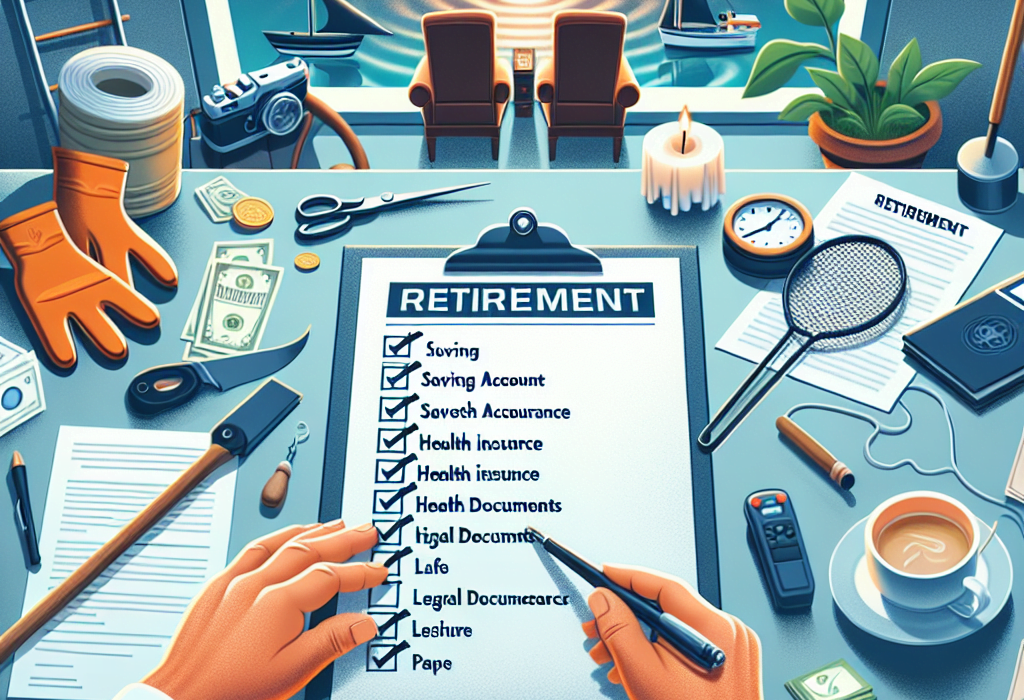Planning for retirement can be both thrilling and daunting. On one hand, you’re excited about stepping into a new chapter of your life, while on the other, you’re unsure exactly what that new chapter will look like. Despite the uncertainties, planning before retirement is an integral part of securing a comfortable future. Below is a detailed retirement planning checklist that should help make your transition smoother.
1. Know What You Want
The first thing to do is to understand what you want. Envision your life post-retirement. What do you want to do? Do you want to travel the world, continue working part-time, or perhaps volunteer in your community? Having a good idea about what your retired life will be like can help you plan your finances accordingly.
2. Evaluate Your Finances
It’s crucial to be financially stable during your retirement years. To make sure you’ve saved enough, analyze your own finances, review your resources, and understand how much income you should expect during retirement. This includes Social Security benefits, retirement accounts, pensions, and personal savings.
3. Calculate Expenses
Next, estimate your retirement expenses. Consider everything from necessities such as housing, food, and healthcare, to leisure costs like travel and hobbies. Keep in mind that some expenses such as work commute costs may decrease, while others like healthcare or leisure might increase.
4. Prepare a Retirement Budget
Based on your expected income and expenses, create a budget. This will help you live within your means in retirement. Adjust it periodically as your life and economic conditions change.
5. Eliminate Debts
Entering retirement with debt can be financially burdensome. If possible, start working towards reducing or eliminating your debts, including your mortgage.
6. Consider Healthcare Costs
Healthcare is one of the major expenses for retirees. Gather information on Medicare and check whether you need additional health coverage. Consider long-term care options as well.
7. Plan Your Investments
Your investment strategy will likely need to change as you approach retirement. Consider shifting from aggressive to conservative investments.
8. Review Estate Planning
Make sure your will, trusts, and power of attorney are up to date. Whether it’s property, investments, or personal belongings, ensure your assets are arranged as per your wishes after your departure.
9. Understand Social Security
Understand the right time to start collecting Social Security benefits. Delaying the start date can increase your monthly benefit.
10. Seek Professional Help
It’s never a bad idea to consult a financial advisor. They can give you a well-rounded perspective on your retirement plans, guide you through the complexities, spot potential problems, and suggest ways to save more.
Conclusion
Retirement should be a time to enjoy and rest after years of work and dedication. Therefore, it’s crucial to plan for it thoroughly and thoughtfully. Planning well in advance gives you enough time to prepare, and adapt to changes as they come.
FAQs
1. When should I start planning for retirement?
It’s never too early to start planning for retirement. The earlier you start, the more time you have to save and invest.
2. How much do I need to save for retirement?
This depends on many factors, including your lifestyle, expenses, debts, and more. A financial advisor can help you figure out the best amount for you.
3. Should I pay off debt or save for retirement first?
Both are important. It’s ideal to do both at the same time if possible. Speak with a financial advisor to develop a balanced plan.
4. How should I invest for retirement?
A mix of investments is generally recommended. Also, your investment strategy may need to shift as you get closer to retirement.
5. What if I can’t afford to save for retirement?
There are always steps you can take, like reducing expenses or finding ways to increase your income. Make saving for retirement a priority in your financial planning.













